A Homeowner Association (HOA) is typically a non-profit organization established by homeowners in a specific community to manage the common areas of the property, manage property interests of homeowners, provide services for homeowners and/or foster a sense of community through the creation or management of social activities and/amenities.
In order to cover the cost of the aforementioned functions HOA’s collect dues, or assessments, from all community members on a recurring basis. These fees can be collected annually, semi-annually, quarterly, or monthly. Depending on the size of the community, the size of the individual homes, and the various functions or services for which the HOA is responsible the recurring dues can vary greatly. Association dues may be used to cover the costs for a variety of functions or services.
The functions and/or services provided are generally specific to each individual community and may be as varied as landscape maintenance, snow removal, garbage collection, street lighting, insurance, community pools, storm water management ponds, golf courses, exercise rooms, etc. Ultimately, the dues must be sufficient to cover the operating budget of the association as well as plan for any necessary future projects or potential emergency expenditures. If an association lacks sufficient funds to cover necessary expenditures it may issue a special assessment, in addition to the recurring dues, specifically to raise the funds needed to cover that cost.
All HOA’s have Boards of Directors constituted of homeowners from the community. Typically there are four offices: president, vice president, secretary and treasurer. These board members are elected by the community in order to act on the behalf of the individual homeowners. The Board has a number of functions/duties/powers, but is ultimately responsible for the management of the community. The role and/or scope of the Board’s authority is specific to the individual community as described in the community’s governing documents as well as state and/or local law. Some of the powers granted to Boards of Directors include the authority to set goals for the community, enforce the governing documents, maintain the association’s property and financial stability as well as enter into contracts for services, create and supervise committees, and conducting annual meetings and board meetings.
When you purchase a property in a H.O.A. you are agreeing to membership within it and thus must abide by all pre-existing rules, regulations, guidelines, etc. HOA’s are responsible for the enforcement of these rules, usually referred to as “covenants, conditions and restrictions” (CC&R’s). These rules exist in order to establish norms for managing and maintaining all properties within the community. The establishment and enforcement of these norms, while occasionally restricting individual homeowner choice, or requiring the sacrifice of certain freedoms for homeowners, fosters a shared communal identity, protects property values, maintains a high quality of life for residents and reduces nuisances.
Depending on the individual community, CC&R’s may regulate anything from the color of your shutters, house, or front door to whether you may have a portable basketball hoop or whether a homeowner is permitted to install a shed. The purpose of this kind regulatory control is to maintain the visual aesthetic of the community. Violation of these rules can vary significantly from one community to another including whether or not a community assesses fines on individual homeowners for violation of the rules and regulations.
